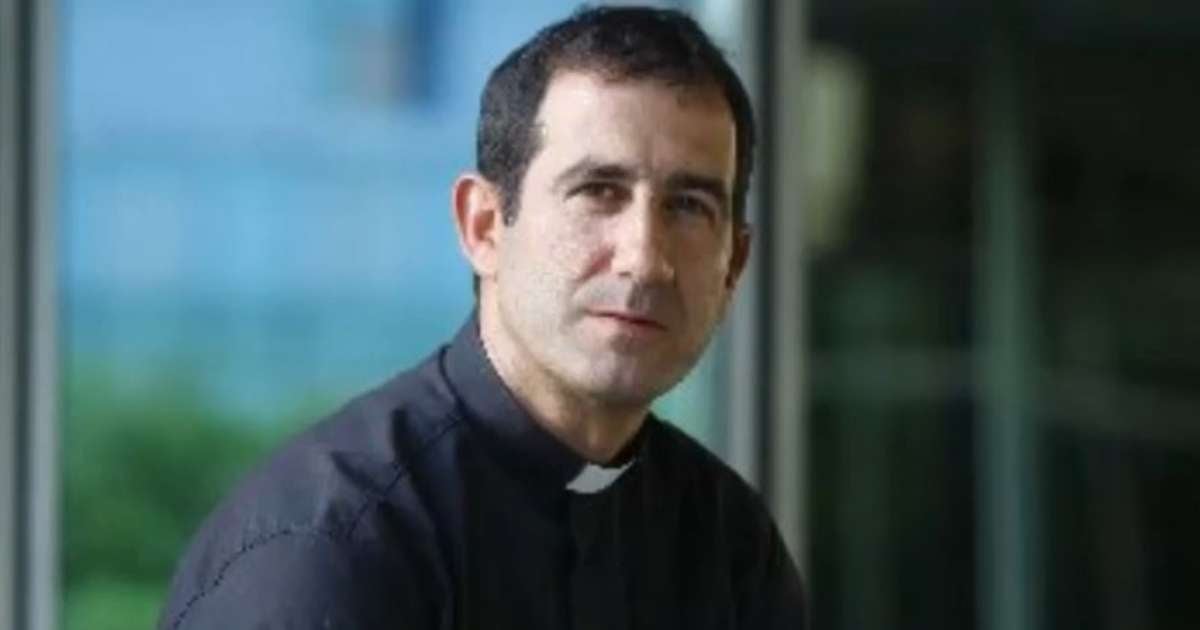Alberto Reyes, a Cuban priest from the Diocese of Camagüey and a vocal critic of the regime, delivered a poignant message to his fellow citizens who, though neither police nor military, are called upon to dismantle popular protests and are authorized to use physical violence against the population.
In a post shared on Facebook, Reyes questions why individuals who suffer the same hardships as the rest of the population would agree to suppress those brave enough to stand up and say "Enough!" on behalf of everyone, simply because they feel important for a few hours.
Father Reyes urges these repressors to realize that possessing power, even if it's illusory and temporary, blinds them to reality and reduces them to mere pawns in a much larger game. CiberCuba shares the complete text of his post below:
"I've Been Thinking... (LXXIII) by Alberto Reyes Pías
I've been thinking about how power makes people invisible. Someone told me about a conversation with a close acquaintance, not quite a 'friend,' but someone within our tight circle of relationships. This person is one of those who, dressed in civilian clothes, is tasked with breaking up popular demonstrations and is authorized to use physical violence against the population.
This person proudly recounted their role, saying, 'We have to stop the people' when they come out en masse demanding freedom. The other person looked at them and said, 'Haven't you realized that I am part of that people, the people you're ordered to beat?'
It's fascinating how our small parcels of power can make us feel so important, so necessary, even heroic, that they blind us to reality. It's astonishing how people who suffer the same shortages and needs as the population will willingly suppress those who have the courage to say, 'Enough!' in the name of everyone.
It's sad how the illusion of importance can lead one to repress and beat those they should be defending. In reality, they are nothing more than pawns, pieces in a game decided at a much higher level. They are merely pawns sold an illusion of power.
But power, even if illusory, is a drug. And like any drug, it alters your perception of reality. You see, but you don't see, because what you're looking at is not the person in front of you. What you see is not the father and mother of a family demanding bread, medicine, quality education, and rest for their children. What you see is not the young person defending their right to freedom. What you see is not the elderly person left alone, subsisting on a meager pension that doesn't allow them to live. What you see, you don't consider a person.
Intoxicated by the illusion of power, you view yourself as a superhero, someone who, through violence, controls and subdues the masses, exhilarated by the impunity of knowing you are protected by a higher power you fear to disobey, a power you feel you cannot disappoint, because then you would become its victim.
But this subjugation will not last forever. As Nicaraguan Bishop Silvio Báez says, 'Crucified peoples, sooner or later, will rise again.'
When that resurrection comes, and rest assured it will come, maybe by then you will have managed to escape to lands of freedom where you will try to bury your past. When that resurrection comes, maybe you will manage to go unnoticed and hide your repressive history. But what you will never be able to escape is your conscience, the one that tells you today, as you beat others, that you are taking the life of your own people."
Understanding Alberto Reyes' Critique of Cuban Repression
In light of Father Alberto Reyes' powerful message, many questions arise about the nature of power, repression, and the future of Cuba. Here are some key questions and answers to help deepen the understanding of this critical issue.
Who is Alberto Reyes?
Alberto Reyes is a Cuban priest from the Diocese of Camagüey, known for his outspoken criticism of the Cuban regime.
What is the main message of Alberto Reyes' Facebook post?
The main message of Alberto Reyes' post is a call for individuals used by the regime to suppress protests to recognize that their perceived power is an illusion and that they are merely pawns in a larger game.
Why does Reyes believe that power is like a drug?
Reyes believes that power is like a drug because it distorts reality, making individuals feel important and heroic, blinding them to the true consequences of their actions against their own people.
